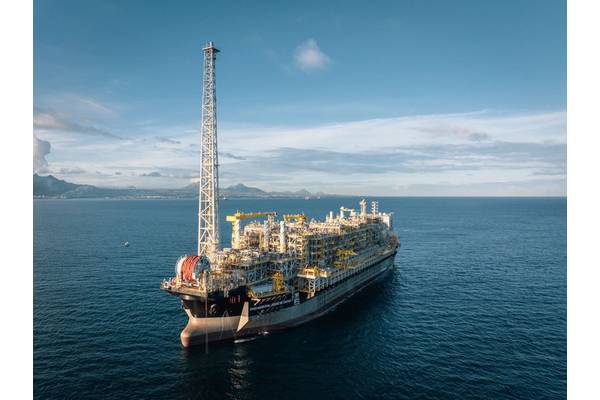
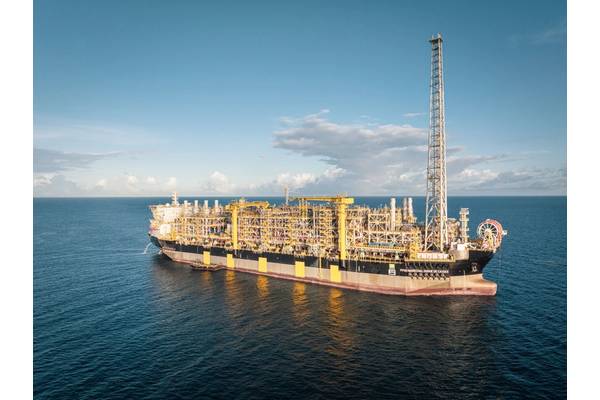
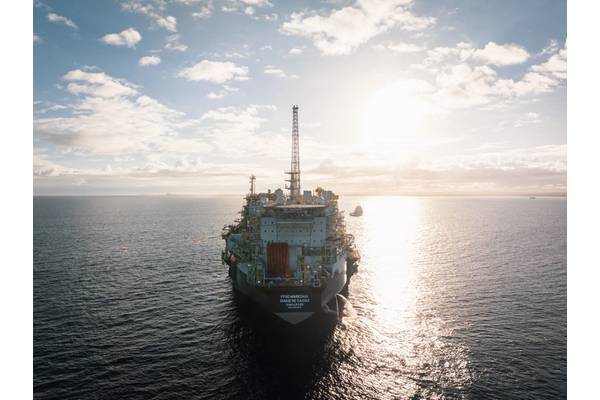
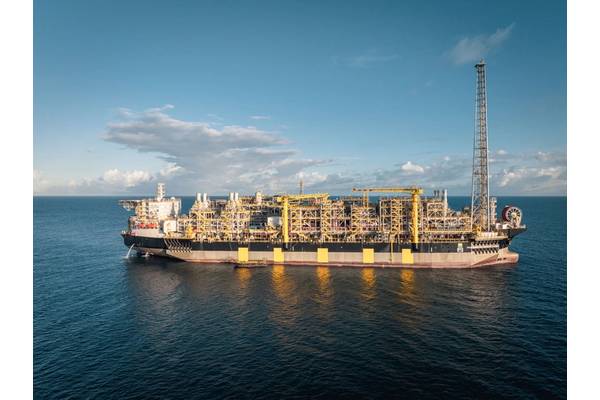
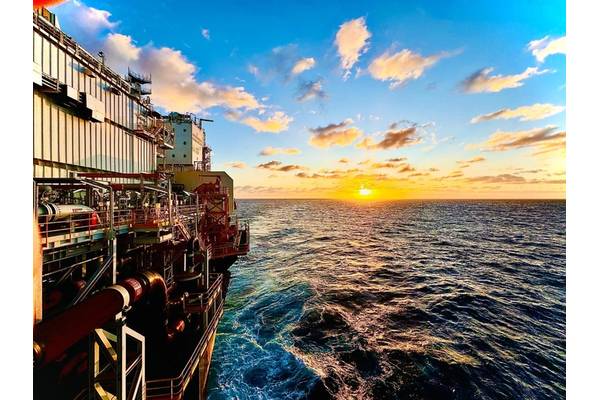
The floating production storage and offloading (FPSO) unit Marechal Duque De Caxias has set off to Petrobras’ Mero field in the pre-salt Santos Basin, after arriving to Brazil from MISC Berhad shipyard in China.
The Marechal Duque de Caxias can produce up to 180,000 barrels of oil and compress up to 12 million cubic meters of gas, all daily. The unit will start operating in the second half of 2024, according to Petrobras.
The FPSO left the shipyard in Yantai, China, in February this year and then made a stop in Mauritius, Africa, to change crew and move cargo.
In Brazil, the unit will be installed in the Mero field, where it will be connected to the wells and subsea equipment. Before starting production, the FPSO will undergo legal procedures and final tests of the production equipment.
The Marechal Duque de Caxias FPSO, chartered from MISC, will increase the field's installed production capacity to 590,000 barrels of oil daily.
This production system provides for the interconnection 15 wells to the unit, 8 oil producers, and 7 water and gas injectors through a subsea infrastructure comprising 80 km of rigid production and injection pipelines, 47 km of flexible service pipelines, and 44 km of control umbilicals.
The FPSO is part of the third Mero definitive production system, in which Petrobras intends to implement HISEP technology from 2028, which will separate the oil and gas at the bottom of the ocean, from where it will reinject the CO2-rich gas in a pioneering way.
The FPSO Marechal Duque de Caxias has other technologies to reduce emissions, such as carbon capture, utilization, and storage (CCUS), where CO2-rich gas is reinjected into the reservoir.
Petrobras is the operator of the unitized Mero field, conducted in a consortium, with 38.6 share. Other partners include Shell Brasil (19.3%), TotalEnergies (19.3%), CNOOC (9.65%), CNPC (9.65%) and Pré-Sal Petróleo S.A (PPSA) (3.5%) as the Federal Government's representative in the non-contracted area.